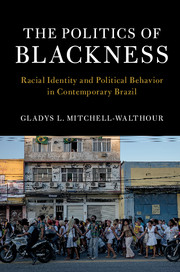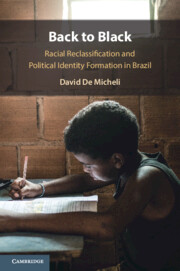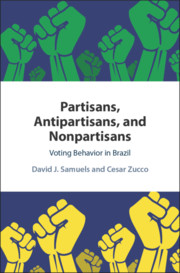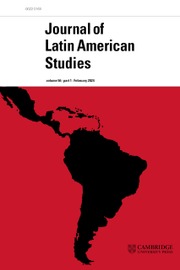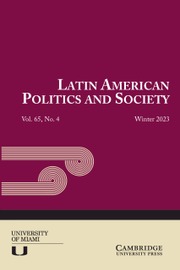The Politics of Blackness
This book uses an intersectional approach to analyze the impact of the experience of race on Afro-Brazilian political behavior in the cities of Salvador, São Paulo, and Rio de Janeiro. Using a theoretical framework that takes into account racial group attachment and the experience of racial discrimination, it seeks to explain Afro-Brazilian political behavior with a focus on affirmative action policy and Law 10.639 (requiring that African and Afro-Brazilian history be taught in schools). It fills an important gap in studies of Afro-Brazilian underrepresentation by using an intersectional framework to examine the perspectives of everyday citizens. The book will be an important reference for scholars and students interested in the issue of racial politics in Latin America and beyond.
- Uses an intersectional approach that allows readers to understand how race, class, gender, and aesthetics shape Afro-Brazilian political behavior
- Appeals to social scientists using quantitative and qualitative methods to study race, gender, group behavior, and politics
- Develops a theory of racial spatiality that gives readers a bottom-up understanding of political representation and its reliance on everyday Afro-Brazilian citizens
Reviews & endorsements
'Gladys Mitchell-Walthour’s The Politics of Blackness is a welcome addition to the burgeoning scholarship on Afro-Brazilian politics. Her nuanced exploration of ongoing patterns of political inequality and under-representation impacting Afro-Brazilians will generate interest among scholars and a more general public seeking to understand the relationship between color identification, electoral competition, and group affirmation in contemporary Brazil.' Michael G. Hanchard, University of Pennsylvania
'Gladys Mitchell-Walthour has produced a pioneering study of political behavior in three major cities of Brazil: Salvador, Rio de Janeiro, and São Paulo. Building on recent literature focusing on race and color in Brazil, Mitchell-Walthour uses intersectionality theory imbued with knowledge of Brazilian gender, racial, and economic perspectives. Most important is the author’s dedication to understanding how Afro-Brazilians explain political inequality and to using a mixed methods approach to understand how interpretations of life experiences of Afro-Brazilians affect individual and group outlook on the political world. Including everyday experience is a crucial component to understanding the importance of developing Afro-Brazilian influence on the political culture of Brazil.' Jan Hoffman French, University of Richmond
'The Politics of Blackness, by Gladys Mitchell-Walthour, is one of the most recent works to be added to this rapidly growing literature … it extensively documents important qualitative work on racial politics in Brazil, which is a significant contribution to the field.' Fabrício M. Fialho, Perspectives on Politics
'… a very nicely executed work, a challenging contribution that will inspire additional research in this field.' Minion K. C. Morrison, Journal of Race, Ethnicity, and Politics
Product details
December 2017Hardback
9781107186101
282 pages
236 × 158 × 21 mm
0.52kg
5 b/w illus. 7 maps 62 tables
Available
Table of Contents
- Introduction
- 1. Afro-Brazilian political underrepresentation
- 2. Blackness and racial identification in contemporary Brazil
- 3. Negro group attachment in Brazil
- 4. Negro linked fate and racial policies
- 5. Afro-descendant perceptions of discrimination and support for affirmative action.

